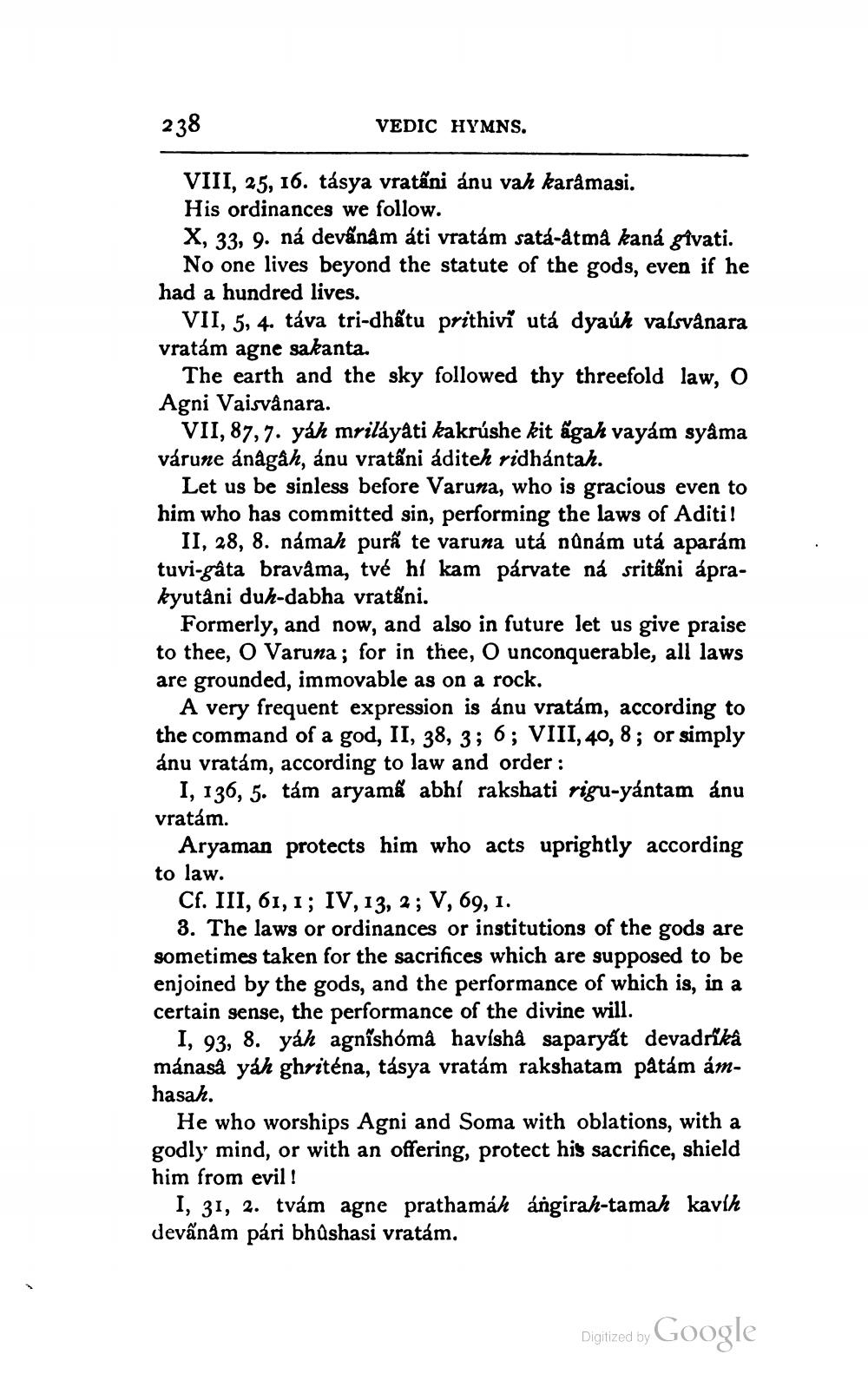________________
238
VEDIC HYMNS.
VIII, 25, 16. tásya vratãni ánu vah karâmasi. His ordinances we follow. X, 33, 9. ná devấnam áti vratám sata-åtmå kaná givati.
No one lives beyond the statute of the gods, even if he had a hundred lives.
VII, 5, 4. táva tri-dhấtu prithivs utá dyaúh vaisvanara vratám agne sakanta.
The earth and the sky followed thy threefold law, O Agni Vaisvanara.
VII, 87,7. yah mrilayati kakrúshe kit ágak vayám syâma várune ánägâh, ánu vratấni áditeh ridhántah.
Let us be sinless before Varuna, who is gracious even to him who has committed sin, performing the laws of Aditi!
II, 28, 8. námah pură te varuna utá nunám utá aparám tuvi-gâta bravama, tvé hi kam párvate ná sritáni áprakyutâni duh-dabha vratâni.
Formerly, and now, and also in future let us give praise to thee, O Varuna; for in thee, O unconquerable, all laws are grounded, immovable as on a rock.
A very frequent expression is ánu vratám, according to the command of a god, II, 38, 3; 6 ; VIII, 40, 8; or simply ánu vratám, according to law and order :
I, 136, 5. tám aryamă abhi rakshati rigu-yántam ánu vratám.
Aryaman protects him who acts uprightly according to law.
Cf. III, 61,1; IV, 13, 2; V, 69, 1.
3. The laws or ordinances or institutions of the gods are sometimes taken for the sacrifices which are supposed to be enjoined by the gods, and the performance of which is, in a certain sense, the performance of the divine will.
I, 93, 8. yah agnishómå havisha saparyat devadrika mánaså yáh ghriténa, tásya vratám rakshatam pätám ámhasah.
He who worships Agni and Soma with oblations, with a godly mind, or with an offering, protect his sacrifice, shield him from evil!
I, 31, 2. tvám agne prathamáh ángirah-tamah kavih devấnám pári bhushasi vratám.
Digitized by
Digized by Google




